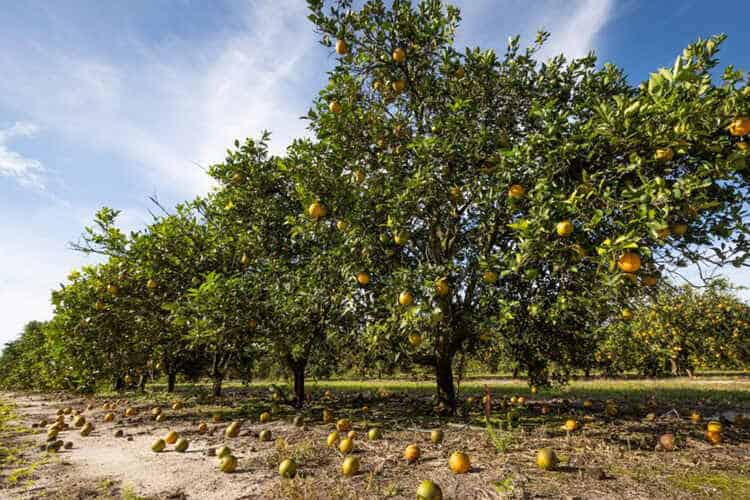Sign up for our newsletter
Get Swipe Garden's independent reviews, and expert advice sent straight to your inbox.
For information privacy practices, read our Privacy Policy.
Sign up for our newsletter
Get Swipe Garden's independent reviews, and expert advice sent straight to your inbox.
For information privacy practices, read our Privacy Policy.
Sign up for our newsletter
Get Swipe Garden's independent reviews, and expert advice sent straight to your inbox.
For information privacy practices, please read our Privacy Policy.

This article provides everything you need to know about over-fertilizing citrus trees. In addition to the quality of the fertilizer, the quantity is also essential. Is it possible to overfertilize citrus trees?
Swipe Garden will analyze the result of over-fertilizing. We also share some tips for fertilizing your plants correctly. Join us to find out right now!
No, over-fertilizing citrus trees can lead to excessive growth, weak branches, and increased disease susceptibility.
Plants can’t absorb water if there is too much salt in the soil due to excessive fertilizer. Plants acquire water through the principle of osmotic pressure. The concentration of soluble substances in the soil surrounding the roots increases constantly. Water flows into the plant as a result of this.
The movement of water changes when the pressure around the plant roots becomes too intense. The term ‘burning plants’ arises from this issue. Furthermore, excessive amounts of phosphorus and potassium in the fertilizer can cause salt buildup in the soil, which citrus trees and lemon trees may not be able to handle.
An excessive amount of fertilizer can be harmful to the environment. Excess fertilizers can contaminate groundwater, lakes, rivers, and even the sea. The chemicals will pollute the water, leading to severe environmental contamination.
If the farmers are cultivating a large area, the issue becomes much worse.
Overfertilization expresses itself in a variety of ways. The most noticeable signs include stunted growth, increased foliage growth with few flowers, and discoloration on the leaf edges.
The root system suffers the most terrible damage. Excessive salt in fertilizers can cause the roots to burn and reduce moisture absorption. Plant growth will swiftly worsen due to the combination of burning and inadequate water absorption. The damaged roots also weaken disease resistance and cause cultural difficulties.
Learn how to fix the fertilizer problems that affect citrus trees:
To prevent over-fertilizing citrus trees, you need to determine the appropriate amount of citrus fertilizer.
Each year of its life, a mature tree requires at least 1 pound of fertilizer:
Young citrus trees need more fertilizer for their development.
If your plant is suffering from overfertilizing, try these methods to save it.
A technique known as “leaching” can eliminate excess salt and nutrients. Leaching refers to the nutrient movement through soil by watering.
This method can help wash the excessive nutrients out, allowing your lemon tree to start to recover.
It’s pretty easy and quick to save a plant with this method. Let’s follow these steps:
You can attach a garden hose to the plant’s bottom. Then, run the water just long enough to get a slow stream. Next, allow the water to pass through the soil surface and leach the nutrients past the plant’s root system by letting the hose go for a time. This is especially important for other trees like Bamboo, which are known for their fast growth and nutrient-demanding root systems.
Over-fertilization is possible, but it will take time for the plant to recover its full vitality. The lemon tree cultivated in containers may suffer more harm than those planted in the ground. However, it is easier to save potted citrus trees. The recovery ability of your plant also depends on how severe the signs of over-fertilizing are. The fewer symptoms your plant shows, the simpler it is to heal.
Over-fertilization is more of an issue than under-fertilization. It may ruin your crop. Don’t worry! You can still apply some techniques to save your plants. Hopefully, you will find this article helpful. If you need any further information, don’t forget to leave questions in the comments.
Thank you for your interest in the article!
Related Posts: